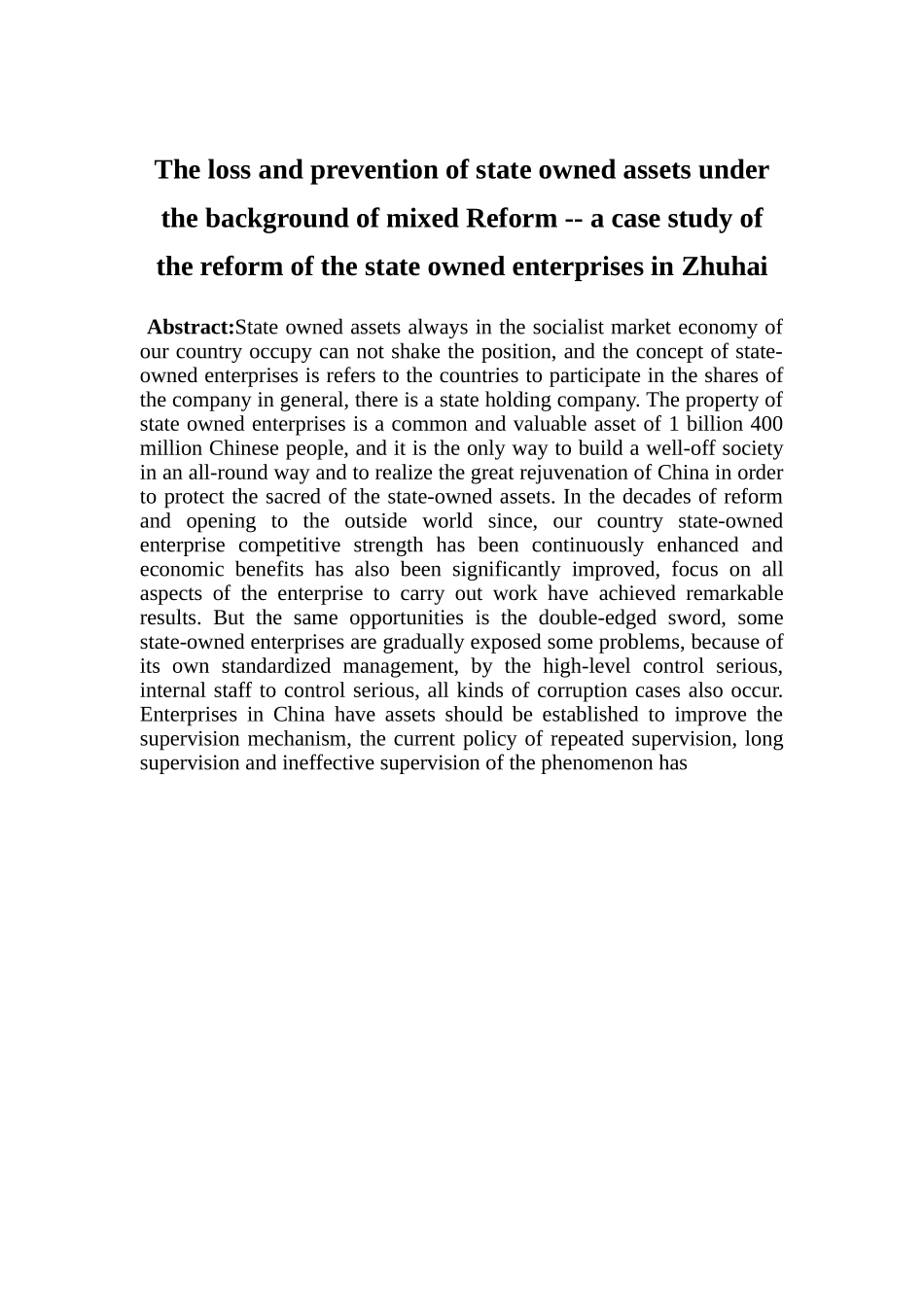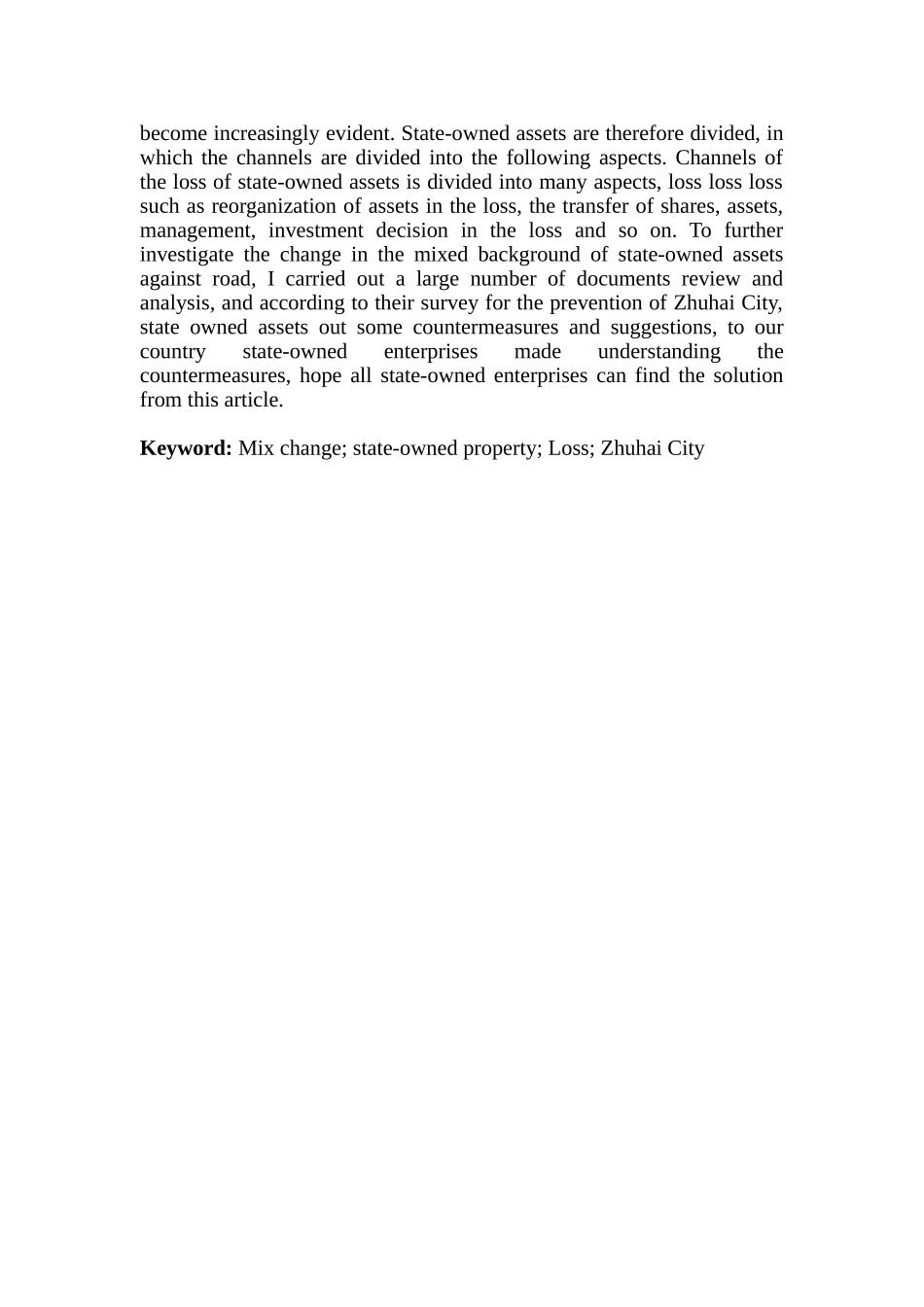[摘 要]国有资产始终在我国的社会主义市场经济中占据着不可撼动的地位,一般情况下,国有企业指的是国家参与股份的公司,也就是由国家控股的公司。国有企业的财产是我国 14 亿国人共同拥有的宝贵财富,保护国有资产神圣不被侵犯是我国全面构建小康社会和实现国家伟大复兴的必由之路。在改革开放的几十年以来,我国国有企业的竞争实力不断增强,经济效益得到了显著提高,围绕企业各方面开展的工作也取得了明显成效。但是在混改的背景之下,机遇同样是把双刃剑,在市场竞争中一些国有企业逐渐暴露出了一些问题,包括自身管理规范、受高层控制严重、内部工作人员把控严重、各类滋生腐败案件等。政府应当为国有资产建立起完善的监督机制,目前现行政策中重复监督、多头监督和监督不力的现象也日渐明显,国有资产也因此被瓜分。混改之下,国有资产的流失渠道主要分为以下几个方面:资产重组中的流失、股权转让中的流失、清产核资中的流失、经营管理中的流失、投资决策中的流失等。为进一步探讨在混改背景之下国有资产流失的防范之路,笔者进行了大量文献资料的查阅和分析,并根据自己的实践调查为保卫国有资产找出了一些对策和建议。[关键词]混改;国有资产;流失;珠海The loss and prevention of state owned assets under the background of mixed Reform -- a case study of the reform of the state owned enterprises in Zhuhai Abstract:State owned assets always in the socialist market economy of our country occupy can not shake the position, and the concept of state-owned enterprises is refers to the countries to participate in the shares of the company in general, there is a state holding company. The property of state owned enterprises is a common and valuable asset of 1 billion 400 million Chinese people, and it is the only way to build a well-off society in an all-round way and to realize the great rejuvenation of China in order to protect the sacred of the state-owned assets. In the decades of reform and opening to the outside world since, our country state-owned enterprise competitive strength has been continuousl...


